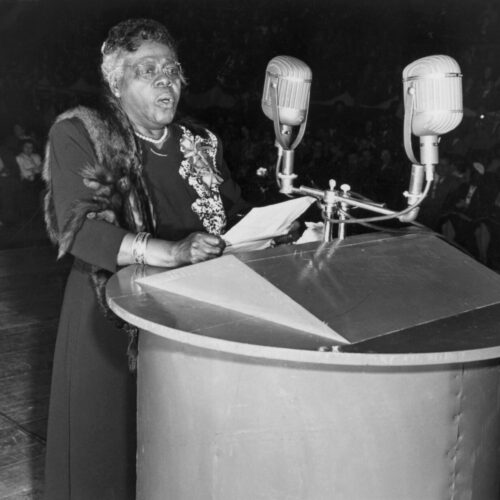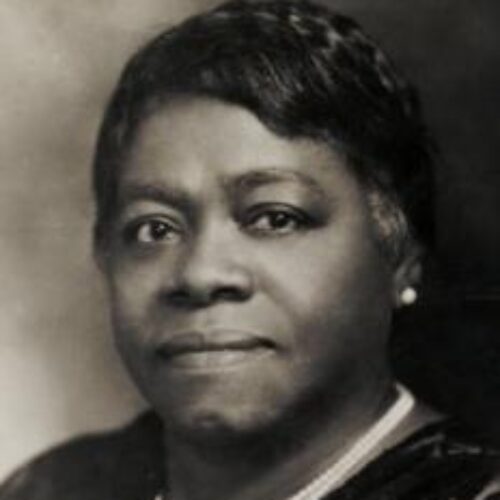Biography
Early Life
Mary McLeod Bethune’s passion for education and political organizing made her one of the most influential women in American history. Born in 1875, a decade after the national abolishment of slavery, Mary McLeod grew up in rural Mayesville, South Carolina.
Her enrollment in the Trinity Presbyterian Mission School was life-changing. Her teacher, Emma Jane Wilson, helped her attend the Scotia Seminary led by Presbyterians in North Carolina. The intertwining of her education and faith provided the foundation for all her future endeavors.
After she graduated from the Scotia Seminary, she married Albertus Bethune in 1898. The couple welcomed their son Albert McLeod Bethune a year later.
Bethune’s most notable contribution was the 1904 founding of the Daytona Educational and Industrial School in Florida. They started with a dollar and fifty cents and five students. Bethune’s acumen made the school a success. It too expanded until it eventually merged with another local institution to become Bethune-Cookman College in 1924.
Political Activism
Her political advocacy began in Florida, as well. Bethune became involved with the National Association of Colored Women (NACW). She was elected as President of the Florida Federation of Colored Women’s Clubs in 1917 and assumed the national presidency of NACW in 1925. During her leadership, Bethune became a global activist. She also secured the organization’s first official headquarters in Washington, D.C.
Her desire for a more politically charged group led her to create the National Council of Negro Women in 1935. In the midst of the Great Depression, Bethune provided public events and summits for Black women. These spaces allowed them to voice their policy concerns to federal agencies and national leaders in the White House.
During this time, she cultivated relationships with women like First Lady Eleanor Roosevelt. Their friendship, and Bethune’s commitment to justice, positioned her as a national advocate, acquiring resources for Black communities during the Great Depression and World War II.
She was appointed as Director of the National Youth Administration from 1936—1943 and established that Black women could become officers in the Women’s Auxiliary Corps in the War Department in 1941.
Religion & Achievements
Bethune’s unyielding commitment to her Christian faith was integral to all of her leadership activities and sustained her commitment to activism. In 1937, Bethune became the first Black Woman to deliver a commencement address at the Catholic Xavier University, where she received the Francis A. Drexel gold medal.
She received many other notable honors and awards, including several honorary degrees, the NAACP Spingarn Award, and a 1942 Southern Conference for Human Welfare Thomas Jefferson Award.
In Bethune’s “Last Will and Testament,” published by Ebony in 1955 after her death, she wrote “I LEAVE YOU FAITH. Faith is the first factor in a life devoted to service. Without faith, nothing is possible. With it, nothing is impossible. Faith in God is the greatest power, but great, too, is faith in oneself.”
Her faith in herself and in the humanity of others had a global impact on the lives and well-being of millions and is a living symbol of her legacy.


